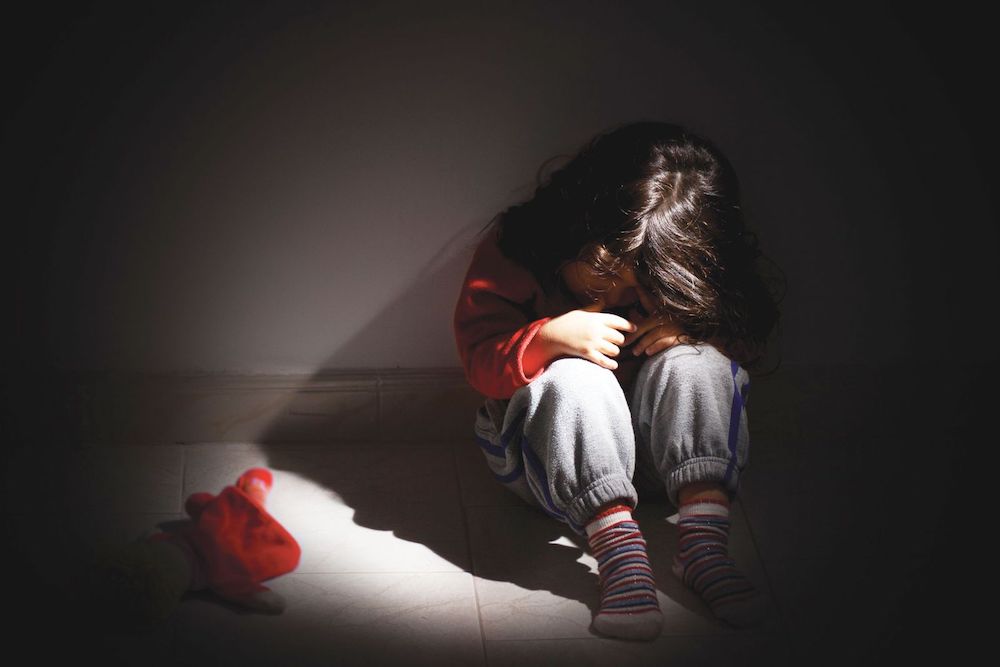How to talk to your children about traumatic events

Every day at Youth Villages, we are charged with helping children who have experienced trauma. They may have been abused or neglected or witnessed domestic or other violence in their homes or neighborhoods. Recently, our country has experienced terrible tragedies, and many parents are searching for healthy, productive ways to talk with their children about what happened.
Here are some tips from Tim Goldsmith, Ph.D., Youth Villages’ chief clinical officer.
- Monitor your own emotions. Stay calm. It is hard not to be emotional when talking about such a terrible tragedy. President Obama even wiped away tears at a news conference. But it’s important that your children see you are calm and in control. They will take their cues from you and too much emotion about the subject may add to their fears. If you’re calm, they will be reassured.
- Talk about it – in an age-appropriate way. With young children, determine whether your child is likely to hear about the incident. If they are, it’s much better for them to hear about it from you rather than an older sibling or someone on the school bus. If you have children of different ages, it’s best to talk with them separately so you can communicate in an age-appropriate way to each of them. Mainly, ask questions, listen carefully and don’t over-share. Talk about things in the simplest way the child can understand, always mindful of her age and stage of development.
- Answer the big questions. Most children are concerned with how the tragedy affects them. They wonder if they’re safe. Older children wonder why someone would do something so awful. Answer these big questions.
- Am I safe? That’s the first and most important question young children need answered, even if they don’t ask the question that clearly. It’s important to let children know that the incident is over. They are safe, and there are many adults in their lives who will keep them safe. You might ask younger children to name people who will help keep them safe: mom, dad, grandparents, trusted neighbors. At school, it might be the teacher, a counselor, the coach. People they know well and trust. That they are safe is probably all a younger child wants to know or needs to know.
- Why do people do these things? Why did they kill children? Those are the very hard questions that older children and teens may ask. It’s OK to tell your child you don’t have the answers. People do bad things sometimes; sometimes we never know why and there are no reasons or explanations. Let your child discuss how he or she feels. Talk with them about what their school does to help ensure safety. Many schools have metal detectors, “stranger drills” and procedures to keep strangers from coming on campus. Some schools have police officers in the school to ensure safety. Be available and open to talk through these things. Remind children it’s always OK to talk to their teacher or a trusted adult if they feel unsafe.
- Don’t be surprised by anger. Children may feel a range of emotions from fear to anger. Older teens may talk about how things could have gone differently, how they would have heroically stopped the shooter, even how to get retribution. It’s a good time to remind that all actions have consequences. It’s good to let adolescents express their feelings in an open discussion about thoughts and feelings.
- Limit exposure to media. With today’s 24/7 news stations, emotional photos and detailed coverage of the shooting will be on our TV screens for days. Younger children should not be exposed to these reports, and it’s best to limit older children’s exposure to the continual coverage.
- Take comfort in family rituals and routines. Stick with your usual routine to maintain the structure that gives children confidence and security. Faith can be a comfort as well. If your family has a faith background, it’s perfectly appropriate for you to pray with your children for families involved and help them take comfort in God’s oversight of their lives.
- Remember you’re the expert on your child. Every child responds differently to stressful events. Some children are more anxious and may need more reassurance. Others may not be as concerned. Answer your children’s questions and watch their reactions. You’ll know best how to meet their needs.
- There is no perfect way to discuss this with a child. These are tough issues for every parent to discuss. There’s no right way to do it. Do it the way that’s comfortable for you and your child. Don’t over-explain. Be open and tell your children they can always talk with you about their fears or concerns.
- Be watchful in the next days and weeks. Watch for changes in your child’s normal behavior. Behavioral changes may indicate that children need more help in dealing with anxieties. Talk to your pediatrician if your child begins to have nightmares, becomes more clingy, refuses to go to school or to public places, or seems to be dwelling on the tragedy too much.
These are just a few tips. If you want to know more, there are many helpful websites, including www.healthychildren.org from the American Academy of Pediatrics and the National Childhood Trauma Stress Network at www.nctsn.org.
Click here to watch the news story: https://www.fox13memphis.com/top-stories/violence-children-see-on-screens-in-neighborhoods-could-have-permanent-impact/973959431
